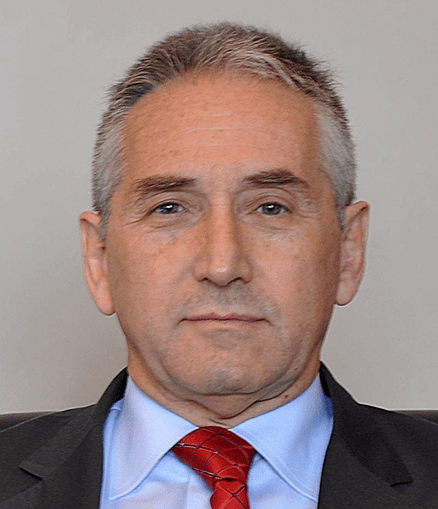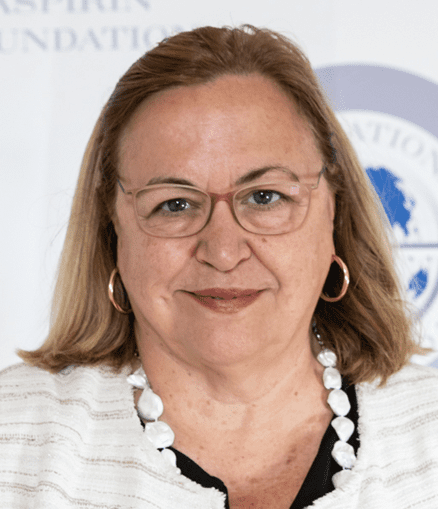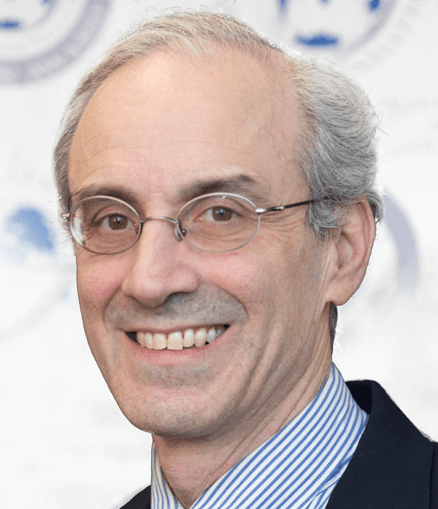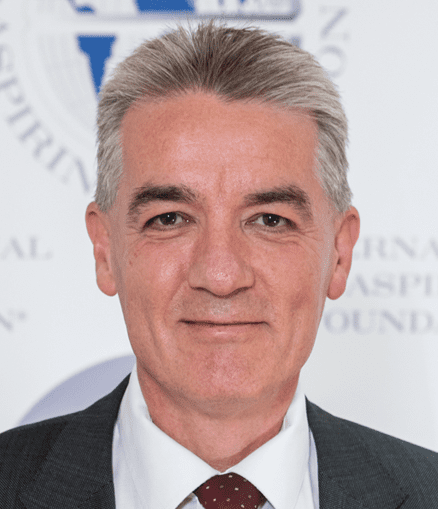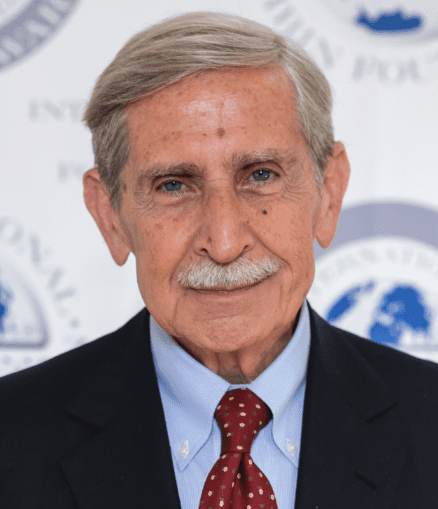Summary of UK guidelines for aspirin
August 2023
The purpose of this document is to keep a working list of UK guidelines with information on aspirin. The guidelines themselves should be read for further information.
Venous thromboembolism in over 16s: reducing the risk of hospital-acquired deep vein thrombosis or pulmonary embolism NICE
NICE guideline Published: 21 March 2018 Last updated: 13 August 2019 www.nice.org.uk/guidance/ng89
NICE guidelines state that aspirin can be considered as one of several options ( see full guideline for alternative options) for the following scenarios:
Pharmacological VTE prophylaxis for people with myeloma who are receiving chemotherapy with thalidomide, pomalidomide or lenalidomide with steroids (aspirin 75 mg or 150 mg off label)
VTE prophylaxis for people undergoing elective hip replacement surgery whose risk of VTE outweighs their risk of bleeding (LMWH for 10 days followed by aspirin (75 mg or 150 mg for a further 28 days off label)
VTE prophylaxis to people undergoing elective hip replacement surgery whose risk of VTE outweighs their risk of bleeding (LMWH for 10 days followed by aspirin 75 mg or 150 mg for a further 28 days off label)
They make the following recommendations for research
- What is the cost and clinical effectiveness of aspirin prophylaxis for people with fragility fractures of the pelvis, hip or proximal femur?
Jenny, J. , Pabinger, I. & Samama, C. M. (2018). European guidelines on perioperative venous thromboembolism prophylaxis. European Journal of Anaesthesiology, 35 (2), 123-129. doi: 10.1097/EJA.000000000000072
Primary prevention of cardiovascular disease
NICE CKS Antiplatelet treatment for primary prevention of cardiovascular disease [Last revised August 2020] “Do not routinely prescribe antiplatelet treatment for the primary prevention of cardiovascular disease (CVD).” It then states, “Consider prescribing aspirin in people with a high risk of stroke or myocardial infarction.” The guidelines remind readers that aspirin is not licensed for the primary prevention of CVD and that people can reduce their CVD risk by other means such as smoking cessation or taking at statin. The guidelines emphasise “if aspirin is being considered, discuss the likely benefits (reduced CVD risk) and risks (such as gastrointestinal bleeding) with the person.”
For further information see:
https://cks.nice.org.uk/topics/antiplatelet-treatment/
NICE also recommend reading their advice on managing antiplatelet-induced dyspepsia:
https://cks.nice.org.uk/topics/antiplatelet-treatment/management/secondary-prevention-of-cvd/#managing-antiplatelet-induced-dyspepsia
Secondary prevention of cardiovascular disease
NICE CKS Antiplatelet treatment for the secondary prevention of CVD [last revised August 2020] suggests antiplatelet treatment for people who have had:
- Acute coronary syndrome [initially dual antiplatelets – aspirin 75 mg daily plus ticagrelor 90 mg twice daily for 12 months]
- Angina [usually low-dose aspirin 75 mg daily]
- Atrial fibrillation [AF] but notes that anticoagulants are usually prescribed
- Myocardial infarction [dual antiplatelet e.g. aspirin plus initial second antiplatelet with aspirin continued indefinitely]
- Stent implantation [aspirin 75-100 mg daily in combination with a second agent for a variable length of time depending on bleeding risk and if ACS or stable coronary artery disease and then aspirin alone].
- Stroke or TIA – in people who have had a stroke or TIA [clopidogrel is the preferred antiplatelet medication but if contraindicated give modified release [MR] dipyridamole combined with low-dose aspirin or if not able to take MR dipyridamole then use aspirin alone].
- Peripheral artery disease [clopidogrel 75 mg daily is the preferred antiplatelet but if contraindicated give low-dose aspirin]
Guidance around managing dyspepsia including Heliocobacter pylori testing and PPI usage is also included. The guidelines explain that risk factors for having a GI bleed include:
- Taking high dose aspirin
- Older age [especially over 70 years]
- History of GI bleed, ulcer or perforation
- Heliocobacter pylori infection
- Concomitant use of other medicines that increase the risk of a GI bleed
Please see
https://cks.nice.org.uk/topics/antiplatelet-treatment/management/secondary-prevention-of-cvd/
For further information about aspirin for secondary CVD prevention.
NICE Acute coronary syndromes guidelines
https://www.nice.org.uk/guidance/ng185
Recommend:
- Offer aspirin after an myocardial infarction (MI) and continue it indefinitely unless the individual is intolerant to aspirin or has an indication for anticoagulant ( for those on anticoagulation see https://www.nice.org.uk/guidance/ng185/chapter/Recommendations#antiplatelet-therapy-for-people-with-an-ongoing-separate-indication-for-anticoagulation )
- Offer aspirin to people who have had an MI within the last 12 months and continue it indefinitely
- Unless contraindicated use dual antiplatelet therapy for 12 months after an MI unless this is contraindicated
- People with a history of dyspepsia should be offered management for this see NICE guidance on gastro-oesophageal reflux disease and dyspepsia in adults (CG184) https://www.nice.org.uk/guidance/cg184
Chest pain
NICE CG95 March 2010 [last updated Nov 2016] recent-onset chest pain of suspected cardiac origin: assessment and diagnosis states that people with suspected acute coronary syndrome should be offered a loading dose of 300 mg of aspirin as soon as possible [unless they are allergic to it]. If this is achieved before hospitalisation a written record that is has been given should be sent with the patient.
https://www.nice.org.uk/guidance/cg95/resources/recentonset-chest-pain-of-suspected-cardiac-origin-assessment-and-diagnosis-pdf-975751034821
Stroke and TIA
NICE NG128 May 2019 Stroke and transient ischaemic attack in over 16s: diagnosis and initial management.
https://www.nice.org.uk/guidance/ng128/resources/stroke-and-transient-ischaemic-attack-in-over-16s-diagnosis-and-initial-management-pdf-66141665603269
states:
1.1.4. “Offer aspirin (300 mg daily), unless contraindicated, to people who have had a suspected TIA, to be started immediately.’
Further information about this decision can be found at:
https://www.nice.org.uk/guidance/ng128/resources/stroke-and-transient-ischaemic-attack-in-over-16s-diagnosis-and-initial-management-pdf-66141665603269
and
https://www.nice.org.uk/guidance/ng128/evidence/a-aspirin-pdf-6777399566
The same guidelines recommend aspirin for people with acute ischaemic stroke, as soon as possible within 24 hours, where a diagnosis of intracerebral haemorrhage has been excluded using brain imaging. For those without dysphagia give aspirin 300 mg orally and those with dysphagia can be give the same dose rectally or via an enteral tube. Aspirin 300 mg daily should be continued until long term antithrombotic treatment is agreed 2 weeks post stroke or at discharge.
A proton pump inhibitor is recommended in addition to aspirin for those with dyspepsia linked to aspirin use.
For further details on aspirin use and stroke read the full guidance.
Atrial fibrillation (AF)
NICE Atrial Fibrillation: diagnosis and management (NG196) (Published 27 April 2021) https://www.nice.org.uk/guidance/NG196 states that ‘for most people the benefit of anticoagulation outweighs the bleeding risk.’ They recommend offering anticoagulation with a direct-acting oral anticoagulant (DOAC), to adults with AF and a CHA2DS2-VASc score of 2 or more. Offer warfarin if a DOAC such as apixaban, dabigatran, edoxaban and rivaroxaban are contraindicated or not tolerated. The guidelines state that aspirin monotherapy should not be offered solely for the purposes of stroke prevention in people with AF. NICE offer guidance for antiplatelet therapy in people with a separate indication for anticoagulant therapy in their NICE (NG185) Acute coronary syndromes guidelines.
https://www.nice.org.uk/guidance/ng185 .
Prevention of cardiovascular events in diabetics
NICE NG17 2015 (updated December 2020) states “Do not offer aspirin for the primary prevention of cardiovascular disease to adults with type 1 diabetes.” https://www.nice.org.uk/guidance/ng17/resources/type-1-diabetes-in-adults-diagnosis-and-management-pdf-1837276469701
NICE NG28 2015 (updated December 2020) Type 2 diabetes in adults- management state “Do not offer antiplatelet therapy (aspirin or clopidogrel) for adults with type 2 diabetes without cardiovascular disease.” https://www.nice.org.uk/guidance/ng151/resources/user-guide-and-data-sources-pdf-8834927870
Primary prevention of colorectal cancer/all GI cancers
NICE NG151 Colorectal cancer guidelines recommend daily aspirin for 2 years or more to help prevent colorectal cancer in people with Lynch syndrome. https://www.nice.org.uk/guidance/ng151/resources/colorectal-cancer-pdf-66141835244485
The guidance explains that this is an off-label use of aspirin, they do not make a recommendation on exact dose as work is ongoing to establish this however, they observe that commonly used doses of aspirin in current practice are 150 mg or 300 mg. Further information on the recommendation explains that the multi-country randomised controlled trial used 600 mg of aspirin daily for more than 2 years. Further information on the NICE evidence review for aspirin use in the prevention of colorectal cancer in people with Lynch syndrome can be found at: https://www.nice.org.uk/guidance/ng151/evidence/a1-effectiveness-of-aspirin-in-the-prevention-of-colorectal-cancer-in-people-with-lynch-syndrome-pdf-7029391214
In order to help people with Lynch syndrome decide if they would like to take daily aspirin to help reduce the chance of developing bowel cancer NICE have produced a patient decision aid.
https://www.nice.org.uk/guidance/ng151/resources/user-guide-and-data-sources-pdf-8834927870
Aspirin and pre-eclampsia
The International Federation of Gynaecology and Obstetrics recommend that women identified as high risk of pre-eclampsia during first trimester screening should be given aspirin prophylaxis (150mg at night from 11-14 weeks gestation until delivery or the diagnosis of pre-eclampsia). They do not advocate a policy of low-dose aspirin for all pregnant women.
Poon LC, Shennan A, Hyett JA et al The International federation of Gynaecology and Obstetrics (FIGO) initiative on pre-eclampsia: a pragmatic guide for first-trimester screening and prevention. Int J Gynecol Obstet 2019; 145 (Suppl.1) 1-33. @ https://obgyn.onlinelibrary.wiley.com/doi/epdf/10.1002/ijgo.12802
A Cochrane review from 2019 concluded that low dose aspirin does slightly reduce the risk of pre-eclampsia and its complications but that further research is required to identify those most likely to benefit.
Duley L, Meher S and Hunter KE et al. Antiplatelet agents for preventing pre-eclampsia and its complications Cochrane Database of Systematic Reviews Oct 2019 https://www.cochranelibrary.com/cdsr/doi/10.1002/14651858.CD004659.pub3/full
NICE 2019 recommends that women who are at high risk of pre-eclampsia take 75-150mg of aspirin daily from 12 weeks until the birth of the baby. They define women at high risk as those with; hypertension during a previous pregnancy, chronic kidney disease, an auto immune disease (e.g. systemic lupus erythematosus or antiphospholipid syndrome), diabetes (type 1 or 2) and/or chronic hypertension. In addition, they advise women with more than one moderate risk factor for pre-eclampsia to take low-dose aspirin from 12 weeks until birth. Moderate risk factors for pre-eclampsia are; first pregnancy, age 40 or above, a pregnancy interval of more than 10 years, obesity, family history of pre-eclampsia and a multiple foetus pregnancy.
NICE NG133 Hypertension in pregnancy: diagnosis and management. 2019 @ https://www.nice.org.uk/guidance/ng133/chapter/Recommendations
Further resources
Antiplatelet treatment: Low dose aspirin last revised August 2020
https://cks.nice.org.uk/topics/antiplatelet-treatment/prescribing-information/low-dose-aspirin/



